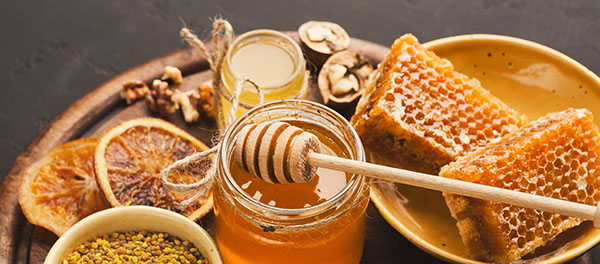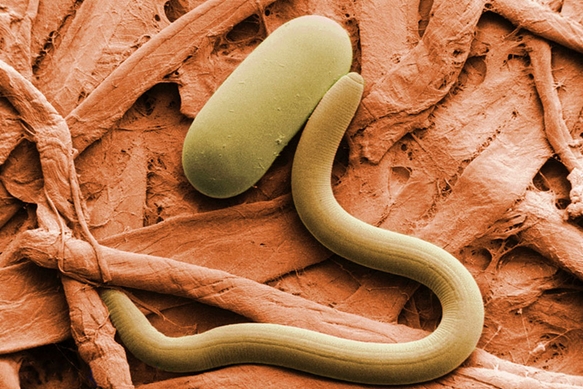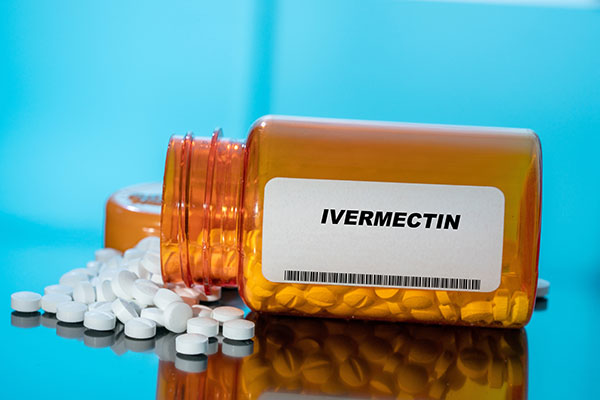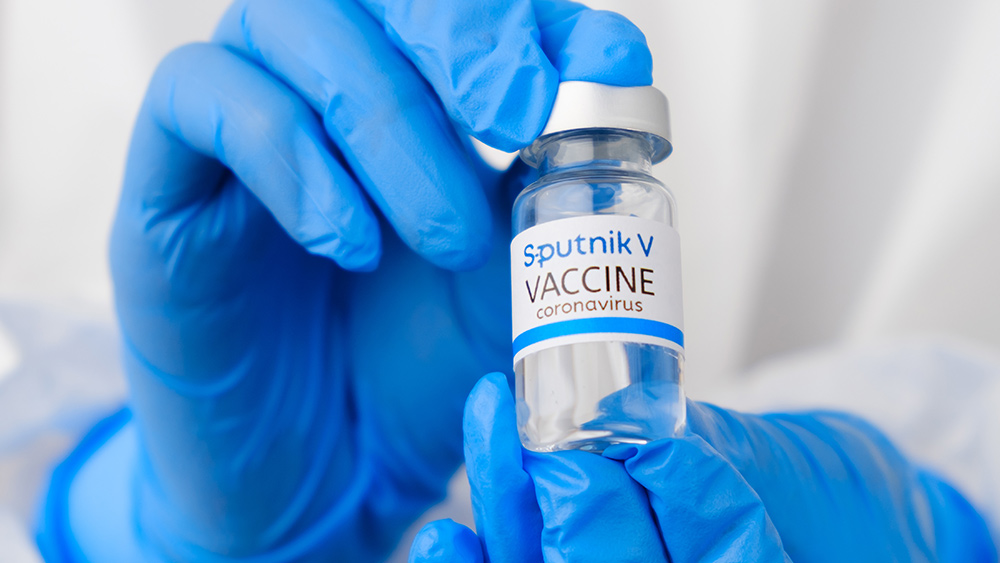Drinking dealcoholized muscadine WINE found to improve skin elasticity in middle-aged and older women
10/11/2023 / By Evangelyn Rodriguez

Drinking moderate amounts of red wine has been linked to certain health benefits for the elderly, such as improved good cholesterol and lower blood sugar levels. A recent study by researchers at the University of Florida (UF) just added anti-aging to this list of benefits, noting that daily consumption of dealcoholized wine made from muscadine grapes can improve elasticity and water retention in the skin of the elderly.
This new finding, presented by study author Lindsey Christman last July 24 at NUTRITION 2023, the flagship annual meeting of the American Society for Nutrition, came from a randomized clinical trial that involved women aged 40 to 67 years.
Muscadine wine is rich in anti-aging polyphenols
For their study, the UF researchers focused solely on muscadine wine and its effects on certain skin parameters associated with aging. They used dealcoholized wine to delineate the activities of the polyphenols in muscadine wine, which have exhibited potent anti-inflammatory and antioxidant properties in previous clinical trials. Some examples of these polyphenols are anthocyanins, quercetin and ellagic acid, which are all known to confer various skin benefits.
The researchers noted that muscadine grapes, from which muscadine wine is made, have a unique polyphenolic profile that sets them apart from other grape varieties used for wine making. Native to the southeastern United States, muscadine grapes are the said to be the first native grape species cultivated in North America. Different colored wines with varying levels of sweetness can be produced from muscadine grapes.
Dietary polyphenols, like those present in muscadine grapes, exert their beneficial effects on human health through various mechanisms. These include reducing the production of free radicals and reactive oxygen species that trigger oxidative stress; protecting against DNA and cell damage; and inhibiting specific cell-signaling factors that lead to chronic inflammation. All these targets of polyphenol action have been implicated in chronic diseases and premature aging. (Related: STUDY: Eating foods high in flavonols (like quercetin) can help you stay strong as you age.)
Because of the wide range of antioxidant and anti-inflammatory activities shown by polyphenols, researchers believe that they can help slow down cell aging, prevent the development or progression of age-related diseases and even extend the lifespan of humans. The green tea polyphenol, (-)-epicatechin, for instance, has been shown to promote health and longevity by shifting energy metabolism and gene expression in aged mice in a way that mimics those observed in younger mice.
In earlier studies, UF researchers also found that the polyphenols in muscadine wine have potent anticancer properties. They noted that the synergistic effects of muscadine wine polyphenols, particularly the interactions between quercetin, ellagic acid and resveratrol, can effectively induce cancer cell death while promoting the survival of normal cells. Muscadine wine also positively influenced brain and immune function in animal studies.
Muscadine wine polyphenols promote youthful-looking skin
To examine the potential anti-aging effects of antioxidant and anti-inflammatory polyphenols, Christman and Liwei Gu, a professor food chemistry and functional food at UF, recruited 17 women aged 40 years and older and randomly assigned them to drink either dealcoholized muscadine wine or a placebo beverage that resembled the wine in appearance and taste but lacked polyphenols.
The participants consumed 300 milliliters (approx. 10 ounces or the equivalent of two glasses) of the placebo or dealcoholized muscadine wine daily for six weeks, followed by a three-week break, before switching to the opposite beverage and drinking that daily for another six weeks. The researchers assessed the participants’ skin conditions at the beginning and at the end of each six-week period, and measured markers of inflammation and oxidative stress.
The researchers found that women who drank the dealcoholized muscadine wine enjoyed improvements in skin elasticity and a decrease in transepidermal water loss. Loss of skin elasticity, which leads to skin sagging, is caused by reduced collagen, elastin and sebum production – all natural consequences of aging. It is also accelerated by oxidative stress due to excessive sun exposure, lack of sleep and poor diet and nutrition.
Transepidermal water loss refers to the amount of water that passively evaporates through the skin to the environment. It is proportional to skin hydration and is used as a measure of skin barrier function, which regulates water loss from the inside and the entry of foreign elements from the outside. Like skin elasticity, increased transepidermal water loss, which leads to dry skin, has been linked to free radical damage.
The researchers explained that the decrease in water loss at the skin surface which they observed in women who drank dealcoholized muscadine wine daily indicated that their skin was providing a more effective barrier against oxidative damage. While they noted no difference in the amount of wrinkles between the wine-drinkers and the placebo-takers, the former showed improvements in skin smoothness and had reduced markers of oxidative stress and inflammation compared to baseline.
“This cross-over study demonstrated that six weeks of dealcoholized muscadine wine consumption resulted in improvement of certain skin parameters associated with aging, such as elasticity on the forearm and barrier function of the skin on the face, when compared to baseline and placebo. This is likely due to decreases in inflammation and oxidative stress,” concluded Christman. (Related: Study: Drinking oolong tea can help reverse aging.)
Christman also addressed the use of dealcoholized wine in their study, highlighting the possibility of alcohol altering the effects of muscadine polyphenols on the skin. Previous studies have associated alcohol consumption, especially heavy drinking, with visible signs of skin aging, such as increased upper facial lines, under-eye puffiness, oral commissures and midface volume loss, as well as more visible blood vessels. Alcohol can also cause dry skin and decrease skin elasticity.
It should be noted that many commercially available muscadine wines are not non-alcoholic, with most having an average alcohol content of around 10 percent alcohol by volume (ABV). Drinking muscadine wine that contains even low amounts of alcohol may not confer the same benefits as the dealcoholized wine used in the study.
Red wine is a polyphenol-rich drink that offers substantial health benefits when consumed in moderation. Find out more about wine and other healthy drinks at Superfood.news.
Watch the following video about how rich food and wine could help you stay healthy.
This video is from the Daily Videos channel on Brighteon.com.
More related stories:
Red wine and dealcoholized red wine can defeat oral bacteria.
A daily glass of red wide could lower risk of polycystic ovaries, infertility in women.
Red wine contains properties that can reduce blood pressure, study finds.
Spanish man lives to 107 drinking homemade red wine instead of water.
Fruit of known invasive weed found to boost collagen production, prevent skin aging.
Sources include:
Submit a correction >>
Tagged Under:
aging secrets, anti-aging, antioxidants, dealcoholized wine, Ellagic acid, food cures, food is medicine, food science, health science, muscadine wine, natural cures, natural health, natural medicine, phytonutrients, polyphenols, remedies, research, skin aging, skin elasticity, skin health, women's health
This article may contain statements that reflect the opinion of the author
RECENT NEWS & ARTICLES
COPYRIGHT © 2017 HEALING NEWS




















